The Human Rights Watch Film Festival Presents 10 Award-Winning Films
in the London Edition, 16-26 March 2023
The Human Rights Watch Film Festival, now in its 27th year in London, presents a line-up of 10 award-winning, international documentary films in partnership with Barbican Cinema, and generously supported by players of People’s Postcode Lottery.
The festival programme, presented in person at the Barbican from 16-24 March, includes in-depth Q&As and panel discussions with filmmakers, film participants, activists and Human Rights Watch researchers following all screenings. The films will also be available to catch up digitally across the UK and Ireland on the festival website from 20-26 March. This year’s edition opens with the London premiere of Delikado:
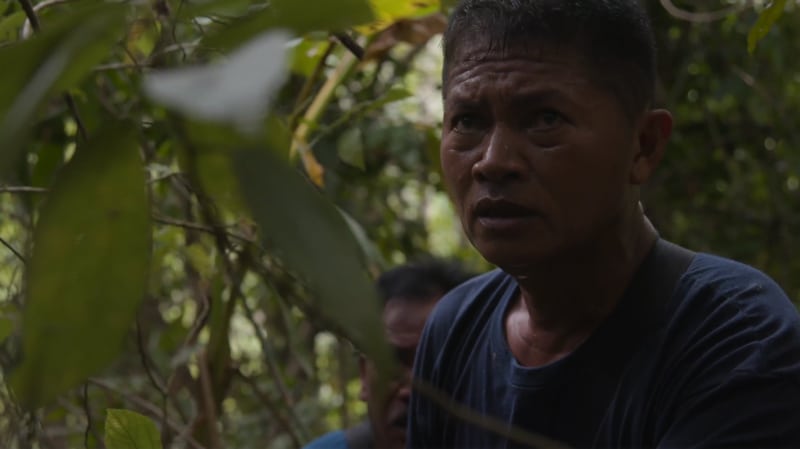
DELIKADO directed by Karl Malakunus
Documentary focussing on three environmental defenders who are risking their lives to stop corporations and governments seeking to steal the increasingly valuable natural resources of their home, Palawan, an island in the Philippines. With its rich biodiversity and natural beauty, Palawan is one of Asia’s most visited tourist destinations, but for a small network of environmental crusaders, it is more akin to a battlefield. The battles fought by these climate activists are shared by allies worldwide – but the abusive regime of former President Rodrigo Duterte adds urgency to this deepening human rights crisis. The filmmaker and journalist Karl Malakunas, who has been based in Asia for two decades, will attend the festival.
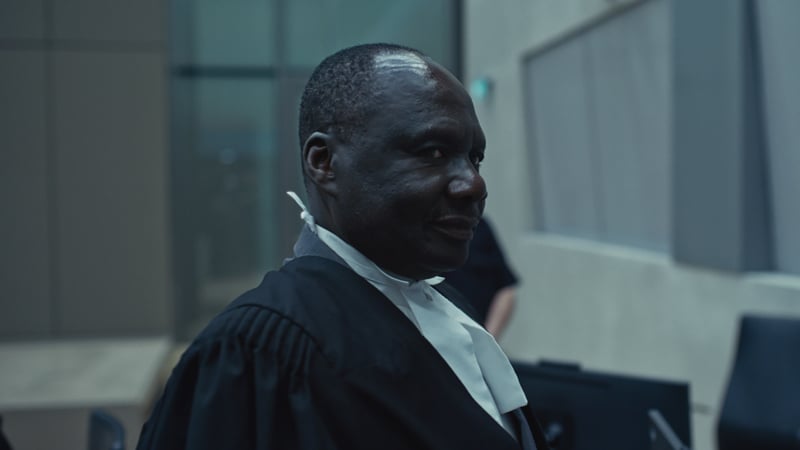
THEATRE OF VIOLENCE (UK Premiere)
Lukasz Konopa and Emily Langballe will attend the festival to present their closing film Theatre of Violence that raises complex questions about new forms of colonialism and definitions of justice in the landmark International Criminal Court trial of Daniel Ongwen. The former Ugandan child soldier, Ongwen was abducted as a child – as were an estimated more than 20,000 other children – by Joseph Kony’s Lord’s Resistance Army. Intimidated and indoctrinated, he quickly learned to kill or be killed. In the unfolding debate his defence lawyer, Krispus Ayena, grapples with questions of accountability when someone is both victim and perpetrator, and the underlying issue of what justice looks like when being conducted in an international court, far away from key cultural and historical context.
NO U-TURN (London Premiere)
In his debut documentary the celebrated filmmaker Ike Nnaebue takes viewers on a journey with fellow Nigerian citizens leaving their country, travelling north through Africa and beyond, in search of work and the opportunity to build a future in Europe, despite the known and unknown challenges lying ahead. As he retraces his own stalled journey, made over 20 years ago, this self-reflective travelogue is overlaid with a powerful poetic commentary and insight into the impact of a colonial past, to unpack the deep longing of an entire generation in search of opportunities.
CATEGORY: WOMAN (European Premiere)
Written and directed by a former Olympian, Phyllis Ellis, Woman focuses on four female athletes from the Global South who are targeted and forced out of competition by regulations imposed by World Athletes, stirring relentless debates on their “legitimacy” as athletes and as women. Using women’s naturally varying androgen levels to evaluate their performance advantages, the sporting institution creates new rules, declaring that certain female athletes must medically alter their healthy bodies to compete in their sport. The film exposes an industry that puts women’s lives at risk, and raises issues of racism, sexism, and the right to determine another persons’ biological sex.
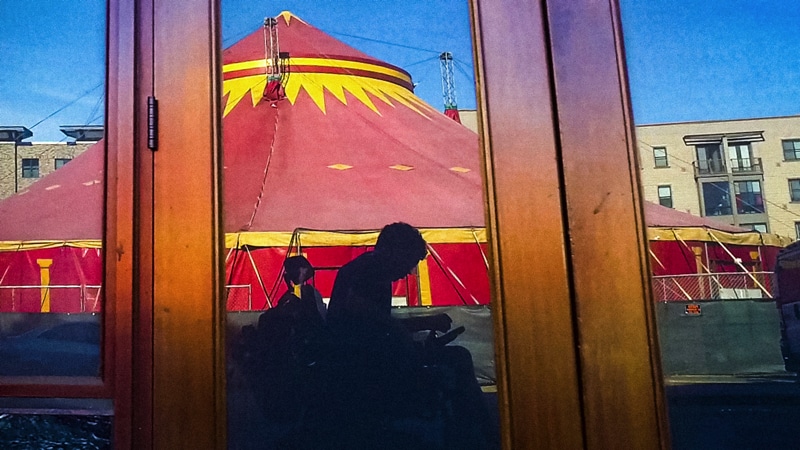
I DIDN’T SEE YOU THERE (London Premiere),
As a person with a disability navigating the world from a wheelchair, the filmmaker Reid Davenport is often either the subject of unwanted gaze — gawked at by strangers — or paradoxically left invisible, ignored, or dismissed by society. In I Didn’t See You There (London Premiere), Davenport sets out to make a film about how he sees the world without having to be seen himself, capturing indelible images informed by his disability. This is a personal, political, and unflinching account – offering a perspective and stylistic approach rarely seen in film. I Didn’t See You There will have two relaxed screenings at the festival, which are open to all audience members.
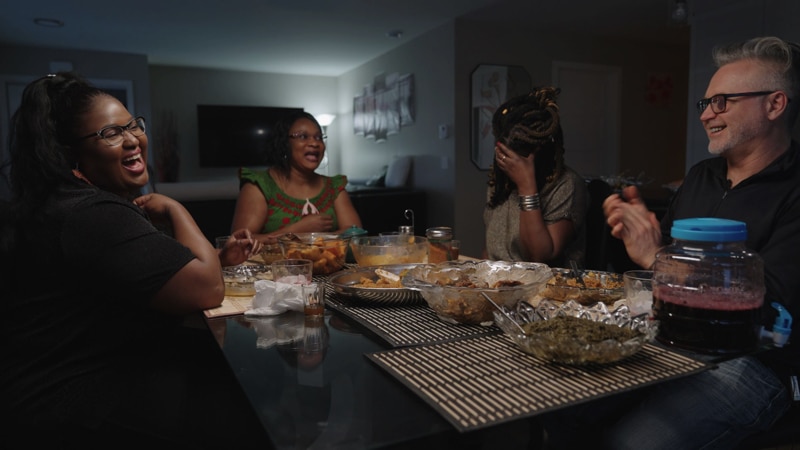
KOROMOUSSO, BIG SISTER (European Premiere)
With candour, humour and courage, a group of African-Canadian women challenge cultural taboos, and build a road to individual and collective healing in Koromousso, Big Sister (European Premiere). Working with co-director Jim Donovan, Habibata Ouarme combines her own experience of female genital mutilation (FGM) with personal accounts from some of her friends, to begin a journey of personal discovery, with discussions on the importance of female pleasure and the complexity of the female anatomy, while working to shed long-held feelings of shame and loneliness. While finding strength and joy in their own frank and intimate conversations together, Habibata and her friends continue to advocate for wider access to restorative surgery and facilitate community conversations in Canada and worldwide.
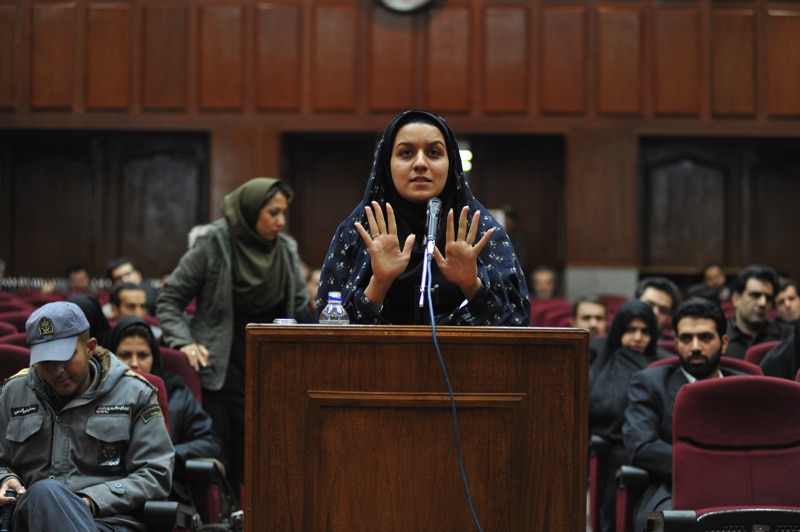
SEVEN WINTERS IN TEHRAN (UK Premiere)
Seven Winters in Tehran (UK Premiere), directed by Steffi Niederzoll, explores the case of Reyhaneh Jabbari, a young Iranian woman who became a symbol of resistance and women’s rights worldwide. In 2007, Reyhaneh, 19, is sentenced to death in Iran for the murder of a man who tried to rape her. Using secretly recorded videos provided by her family, their testimony, and the beautiful, lyrical letters she wrote from prison, voiced by Holy Spider actress Zar Amir Ebrahimi, Seven Winters in Tehran opens a window into the many ways women are oppressed and silenced in Iran, and the immense risks taken by those who defend and support them.
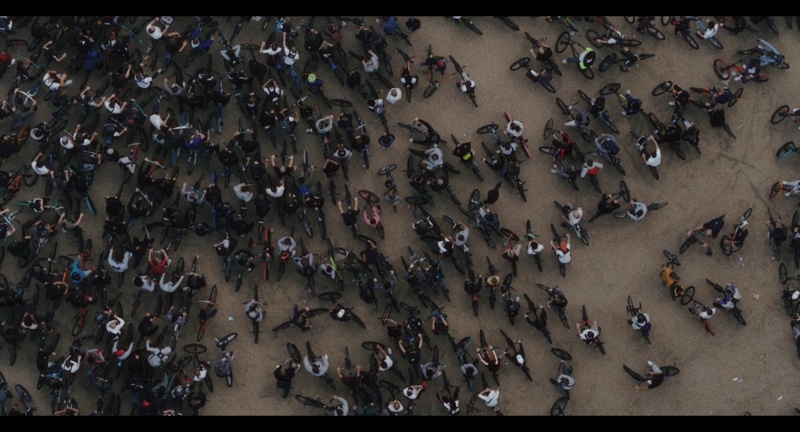
IF THE STREETS WERE ON FIRE (London Premiere)
If The Streets Were On Fire (London Premiere) introduces BikeStormz, a movement of young cyclists that attempts to offer a safe and welcoming space for youth in London. Starting as a protest against violent crime with the slogan “knives down, bikes up,” BikeStormz, founded by a social activist, Mac Ferrari-Guy, has grown into a movement and safe space for young people around London to freely express themselves. The filmmaker Alice Russell beautifully captures groups of young people as they glide through the city, doing wheelies, tricks, and acrobatics and cheering each other on as they travel through the postcode-neutral space of central London. Yet as they come together and find liberation through cycling, they are threatened with arrest and accused of anti-social behaviour.
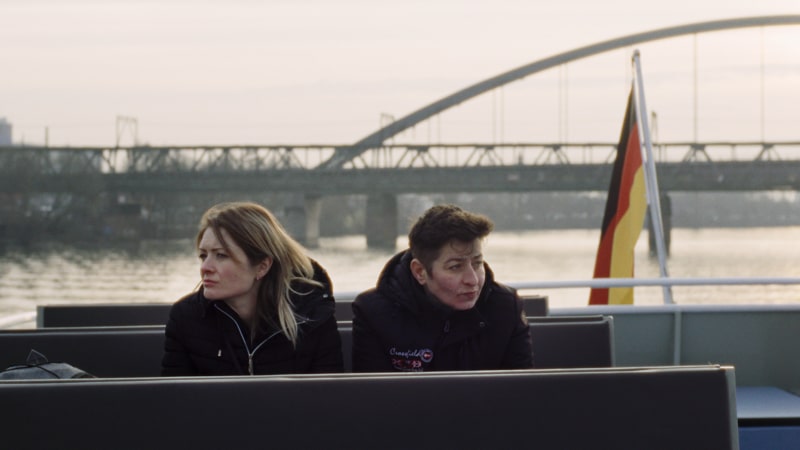
SILENT LOVE (UK Premiere)
Marek Kozakiewicz’s Silent Love (UK Premiere) is a coming-of-age and a coming-out story about embracing new roles and redefining old ones. Aga, 35, is legally adopting her teenage brother, Milosz, after their mother’s death – a process that probes into her life choices. However, there’s something she can’t share in their conservative Polish village: her long-term relationship with her girlfriend, Maja. Aga has always hidden her relationship from friends and family, and must continue to hide it from the social workers for fear of losing her case for Milosz. Silent Love delicately captures this trio’s discreet struggle as they begin to live as a family, against the prejudices of an ultra-conservative and viscerally homophobic society.
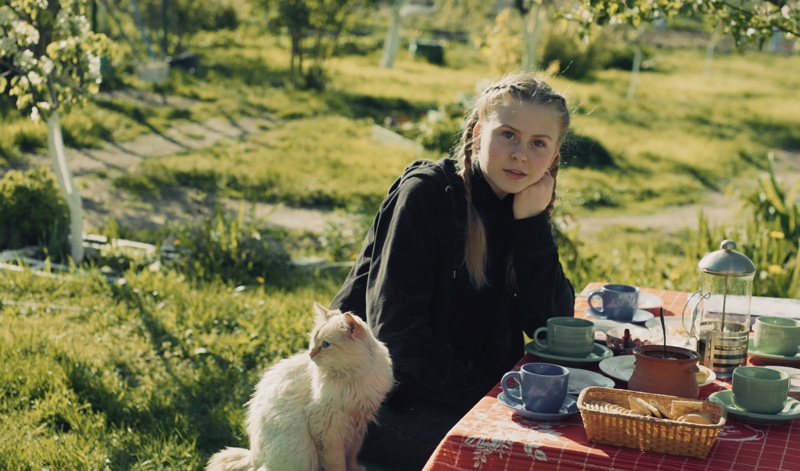
WHEN SPRING CAME TO BUCHA (UK Premiere)
The impact of war on the day-to-day lives of citizens of a small town in Ukraine is profiled in When Spring Came to Bucha (UK Premiere), which poignantly captures how a small community continues with life amid trauma and loss, while war rages on close by. After a month of intense fighting, the Russian army withdrew, leaving the town destroyed in its wake. Yet in the midst of suffering, a young couple gets married, and life must go on. This heart-rending yet empowering documentary tells stories of loss, hope, and resistance, as the spring flowers of Bucha begin to bloom.
Details about the screenings and discussions can be found HERE

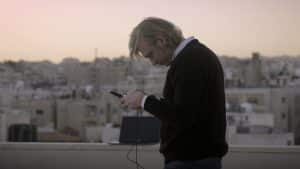 The festival will open at the Barbican on 14 March with Hans Pool’s Bellingcat – Truth in a Post-Truth World, which follows the revolutionary rise of the “citizen investigative journalist” collective known as Bellingcat, dedicated to redefining breaking news by exploring the promise of open source investigation.
The festival will open at the Barbican on 14 March with Hans Pool’s Bellingcat – Truth in a Post-Truth World, which follows the revolutionary rise of the “citizen investigative journalist” collective known as Bellingcat, dedicated to redefining breaking news by exploring the promise of open source investigation. 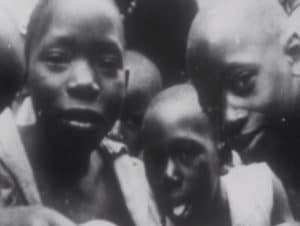 Returning the Colonial Gaze is part of the Barbican’s 2018 The Art of Change season, which explores how the arts respond to, reflect and potentially effect change in the social and political landscape.
Returning the Colonial Gaze is part of the Barbican’s 2018 The Art of Change season, which explores how the arts respond to, reflect and potentially effect change in the social and political landscape.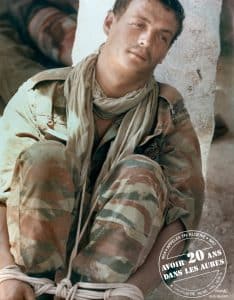 Afrique 50 (18*)
Afrique 50 (18*)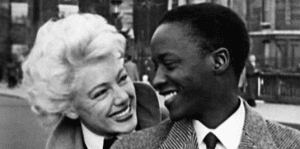 Afrique sur Seine (15*)
Afrique sur Seine (15*) Si Moh, The Unlucky Man (18*)
Si Moh, The Unlucky Man (18*)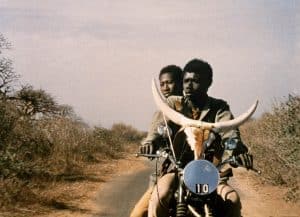 An Adventurer’s Homecoming (18*)
An Adventurer’s Homecoming (18*)